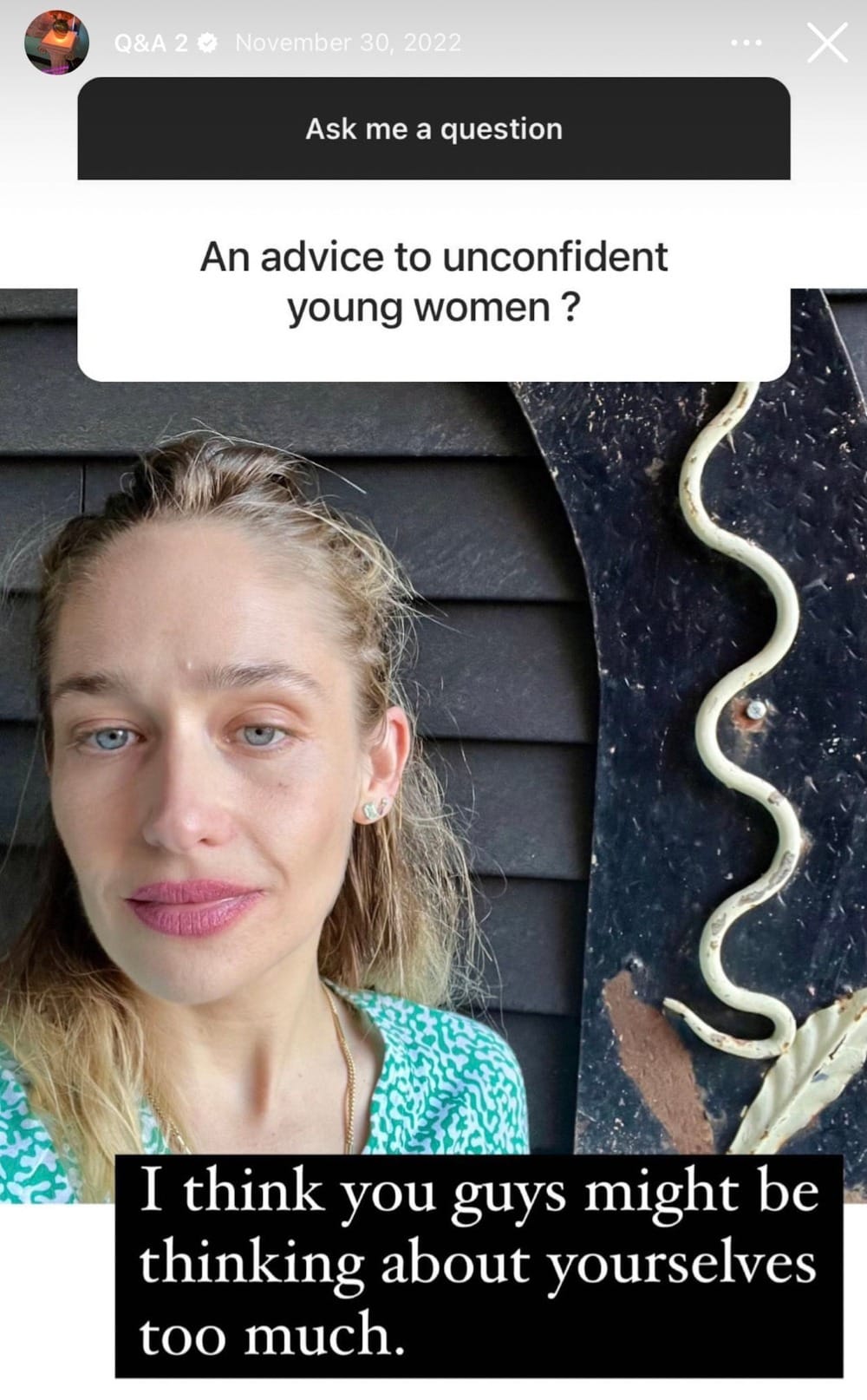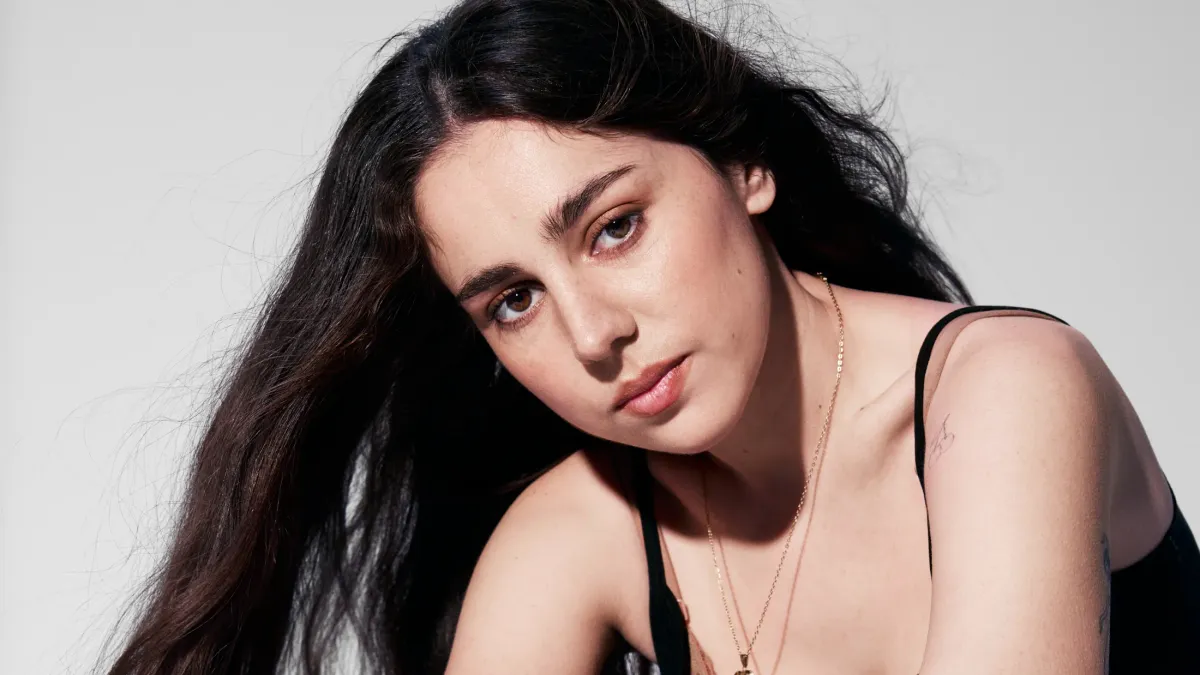Singer-songwriter Samia Finnerty released her third LP Bloodless last month to critical acclaim. The emotionally dense record sees Finnerty tackle themes of womanhood, identity, and bitterness atop some of the most compelling pop instrumentation of the year.
Finnerty recently moved from her hometown of Los Angeles to Minneapolis, now living near longtime collaborator, Hippo Campus's Jake Luppen. Bloodless has production contributions from Luppen, Caleb Wright (who has worked on all three of Samia's records), as well as Finnerty herself.
I chatted with Samia recently to discuss the themes and lyrics of Bloodless, as well as the bits and bobs that inspired it all.
This interview has been edited for clarity and length.
Leah @ TND: So, you recently moved to Minneapolis. What sparked that move? How are you liking that city so far?
Samia: I love it. I've always loved it and wanted to live here. My best friend lives across the street, so it ultimately was just that I wanted to be closer to her and the people I work with live here too. And it's cheap to live here, so it's great.
What's the music scene like up there?
It's cool. There's really cool stuff coming out of Minneapolis. I mean, there always has been. It's such a historically important city for music. But there's a real DIY spirit here that I haven't felt since I was in college, so it's just nice to be peripherally even a part of it.
So, getting into it... "Bovine Excision" centers around the metaphor of the harvesting of cow organs. What inspired that kind of overarching metaphor?
I was thinking a lot about absence when I was writing the other songs, and I'd always been fascinated with the phenomenon of cattle mutilation, just because... where's the blood? And so then I started thinking about how that pertained to my theme of absence being extremely powerful and how presence can compromise the promise of absence, and in that specific example, the thing you're drawn to is the blood because it's not there. And so it just felt apt.
How did writing this record help guide you through your struggles with identity?
I didn't come to any conclusion through writing it, but there's, like, a theme of acquiescence on the album that I landed on because I spent so much time excavating. I think about that Jemima Kirke meme that's, like, "I think you guys are just thinking about yourselves too much." That's sort of where I landed. I think, yeah, by the last song, that's sort of what I'm saying.

Yeah, that one Instagram Q&A that she did really sparked some generational reaction images. I use the "what the hell, sure" all the time.
Yeah, that set the world ablaze. She's a treasure.

In your interview with Rolling Stone, they briefly kind of touch on this alter ego that you have called Kiki Swamp. Can you tell me about that and where that came from?
I wish I never said that. It's just this alter ego that I created sort of to make my friends laugh, but also just to feel like I think during the self-searching fucking excavating process, I needed an outlet, and she's just like this magical creature woman who lives in the swamp and doesn't care about anything other than having a good day, and so that's a, she's a little bit of like a crutch for me.
And then in terms of all of the themes of womanhood in this record and frustrations with men and all of that, what did you discover in that realm? How would you give advice to people trying to combat male-induced frustrations?
I think so much of it for me was about accepting my conditioning, and I just had a lot of shame around caring what men thought and creating an identity based on criteria I imagine they would like. You can work backwards from there and also just accept the inevitability of that happening. I think the shame around it is just sort of completely unnecessary, and you can still investigate it without being embarrassed.
I read the Substack post about the day in July 2024, and you said "God and men provide some aspect of relief here in that they will make choices for you." So do [God and men] kind of come up as parallels?
It's less men in reality and more of this conglomerate fictional man in my mind that I built to help guide me, which is a parallel to God in my life, just this sort of nebulous thing that you can create so that in some Byzantine way you end up doing what you want to do but not taking responsibility. So, yeah, totally.
Just the idea of men is, like, a monolith, basically.
Yeah, yeah, especially as someone who has a hard time making decisions, it's nice to sort of, like, create a boss.
And you also mentioned in that post about listening to Melodrama, and as someone that is a very big fan – I have a tattoo for that album – I could definitely kind of see some parallel themes of that and Bloodless with identity and womanhood. Was any part of that kind of inspirational for you?
Yeah, I think just the spirit of Lorde is really inspirational. I know I'm one of a billion guys who feel that way. But I had written most of [Bloodless] by the time I started getting into it. I was really late to Melodrama somehow. But yeah, there's just something about that album that makes you feel like you can do stuff.
It really just feels like it's the word of God. She is really the only person that could name herself Lorde and get away with it.
Oh, yeah, absolutely. Absolutely. She also can say anything, and she makes it cool. She imbues any phrase with coolness.
So the song "Proof" is probably the most lyrically dense song on this record. And it just being you and the acoustic guitar allows that to really shine. The "You don't know me bitch" refrain, because of how cutting that is on its own, was that something the song was centered around?
I think it came because there's so much packed into the verses. I work mostly in metaphors, and I write so much in code, that every so often I just have to tell them what the song's about. [The refrain] felt like an appropriate moment to say "here's the point." It also helps me have a compass for the rest of the song. Once I got to that as the thesis statement in the chorus, I was like, okay, cool. I know exactly how to tell the rest of this story around the central idea.
I mean, even with how the first verse of that is definitely more coded and abstract. But the second verse with "I wish for you to read my mind / Why don't you come and find me waiting in the foyer for you?" I heard that for the first time and that just felt like a sucker punch. That was effective.
Awesome, yeah. By that point in the song, I was like, "give it to him." Say what happened.
That felt like the, Mortal Kombat K.O.
Awesome. Cool, thank you.
I saw in your interview with NPR that you and your collaborators were listening to "Pants" for 18 hours straight, and that it helped you ground the record sonically. What about that song is found in the rest of the record? What aspects of it do you think were grounding for all of you?
That's a good question. There's a levity and a childlike magic feeling that that song gives me – a hopeful feeling, which is not something that always comes naturally to me when I'm writing lyrics, especially. So it was nice to have that as a foundational aspect for the rest of the album just because it felt like it gave it a lot of angst. I think that feeling sort of cuts the angst in a necessary way.
At what point did you add the addendum to the end? The little acoustic bit that loops into the beginning.
So, the intro and the outro of "Pants" were just the one song, "Biscuits". That initially was, like, 10 minutes long with just the one moment of melody. We knew that might be asking a lot of people, so I felt right bookending the rest of the songs with that.
Did the 10 minutes have lyrics, or was that more of a jam kind of song?
It was just a jam. And it was pretty indulgent because it was just such a great memory for us. We wanted to figure out a way to try to communicate that feeling without being, like, "listen to this fun memory that you weren't a part of."
The last question I have is about "Dare", which is very conversational, but it's kind of up to the listener to pick apart. What is really being said? Could you kind of elaborate on what inspired that song? I saw that the first verse is a reference to a Bill Stoneham painting. Does that tie into the rest of it, or is that more just a lyric in a vacuum?
Yeah, this was a song that I really wanted to write in code, because it was stuff I didn't want to say conversationally. So, it's just about recognizing a kinship in someone, but not being able to reach them. And that painting really evokes that feeling for me, that there's just something that needs to be done, or people who need to meet each other and meet each other in a place and can't do that because of physical or emotional boundaries.

So, that started from the feeling, and then I ended up writing it a lot just about the painting and what the painting meant to me – what I thought maybe those characters were feeling.
I always try to ask this at the end of interviews, what have you been listening to lately? Any new releases?
Viagra Boys' album. What else have I been listening to? I can't stop listening to Lucinda Williams's stuff. It's been, like, years of not being able to listen to much else, but it's so good.
Samia's Bloodless is out now on Grand Jury. She is also on tour in North America.




What do you think?
Show comments / Leave a comment